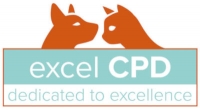
Flexi ECPD - Approach To Critical Care Nursing
Excel CPD - Vet Nurse CPD
 2 years ago
2 years ago  7528 views
7528 views
Duration: 10 hour(s)
Cost: £175
Module 1: Recumbency Nursing
Common causes for recumbency
Nursing the recumbent patient
Common complications associated with recumbency
Learning objectives:
List some of the common causes for recumbency and how these conditions may be treated
Discuss the nursing considerations for the recumbent patient and how these can be implemented to help support the patient during their recovery whilst hospitalised
Describe the common complications associated with recumbency and how these can be prevented whilst the patient is hospitalised
Module 2: Nutrition in the Hospitalised Patient
Why is nutrition important?
Who needs nutrition?
When should nutrition be started?
Creating a nutrition plan
Assisted feeding options
Learning objectives:
Understand why nutrition is important for the recovery of hospitalised patients
Identify patients in needs of nutrition
Discuss when is the appropriate time to start nutrition in their hospitalised patient
Describe how to create a feeding plan including patient assessment, calculation of RER and implementation of the nutritional plan
List the common assisted feeding techniques and understand the indications and contraindications of each
Module 3: Sepsis
What is SIRS / sepsis?
How to recognise sepsis in dogs
How to recognise sepsis in cats
Sepsis bundles
Recent sepsis research in human medicine
Learning objectives:
Know the definitions of SIRS / sepsis and the difference between them
List the patient observations used to help us be able to recognise sepsis in the dog
List the patient observations used to help us be able to recognise sepsis in the cat
Understand what a sepsis bundle is, and when they can be used in practice
Understand the recent research into sepsis in human medicine and how this impacts us in veterinary practice
Module 4: Acid Base / Electrolytes
What is acid / base?
What are electrolytes?
Electrolytes – Sodium
Electrolytes – Potassium
Electrolytes – Calcium
Glucose
Learning objectives:
Explain acid / base status
Understand which electrolytes we can measure in veterinary practice and why
Identify when a patient may become hypo or hypernatraemic, and describe the treatments that may benefit them
Identify when a patient may become hypo or hyperkalaemic, and describe the treatments that may benefit them
Identify why a patient may be hypo or hypercalcaemic, and describe the treatments that may benefit them
Identify why a patient may be hypo or hyperglycaemic, and describe the treatments that may benefit them
Module 5: Infection Control
How to create an infection control plan for the clinic
Assigning an infection control champion
Identify and develop protocols
Make an assessment
Staff education and training plans
Surveillance and compliance
Learning objectives:
Identify an infection control champion in practice and understand their role in the infection control plan
Discuss the common infection control protocols required in practice to minimise the spread of pathogens
Understand how to make an assessment of the protocols already in place and identify their strengths and weaknesses
Explain the importance of staff education and training when implementing infection control protocols
List the common surveillance techniques to ensure compliance to the infection control plan
Module 6: End of Life Care and Clinical Governance
Euthanasia
Palliative care
Mental health awareness
Clinical governance in practice
Learning objectives:
Understand the reasons vets and clients consider euthanasia, and learn ways to ensure the experience can be made as peaceful and calm as possible in practice for all involved
Understand the reasons that clients may choose to consider palliative care, and how we can help ensure the patients are comfortable within our role as veterinary nurses
Understand the impact of euthanasia and how the death of a pet can affect both the family of the patient and the veterinary staff involved
Understand the mental health implications of veterinary medicine on the team, and ways in which we can help our team and ourselves to cope
Describe what clinical governance is, what is discussed and why it may be beneficial to start holding these meetings in your practice
Tutors: Elle Haskey & Katie Gray
Date: On demand, unlimited lifetime access
Cost: £175 +vat
Length: 6 module
CPD: 10 hours
Level: Introduction / Intermediate
https://excelcpd.co.uk/product/vet-nurse-online-cpd-approach-to-critical-care-nursing-flexi-cpd/
Who is it for?
Veterinary nurses
Number of CPD hours this event can be recorded as
10 hours
Registration and Booking
